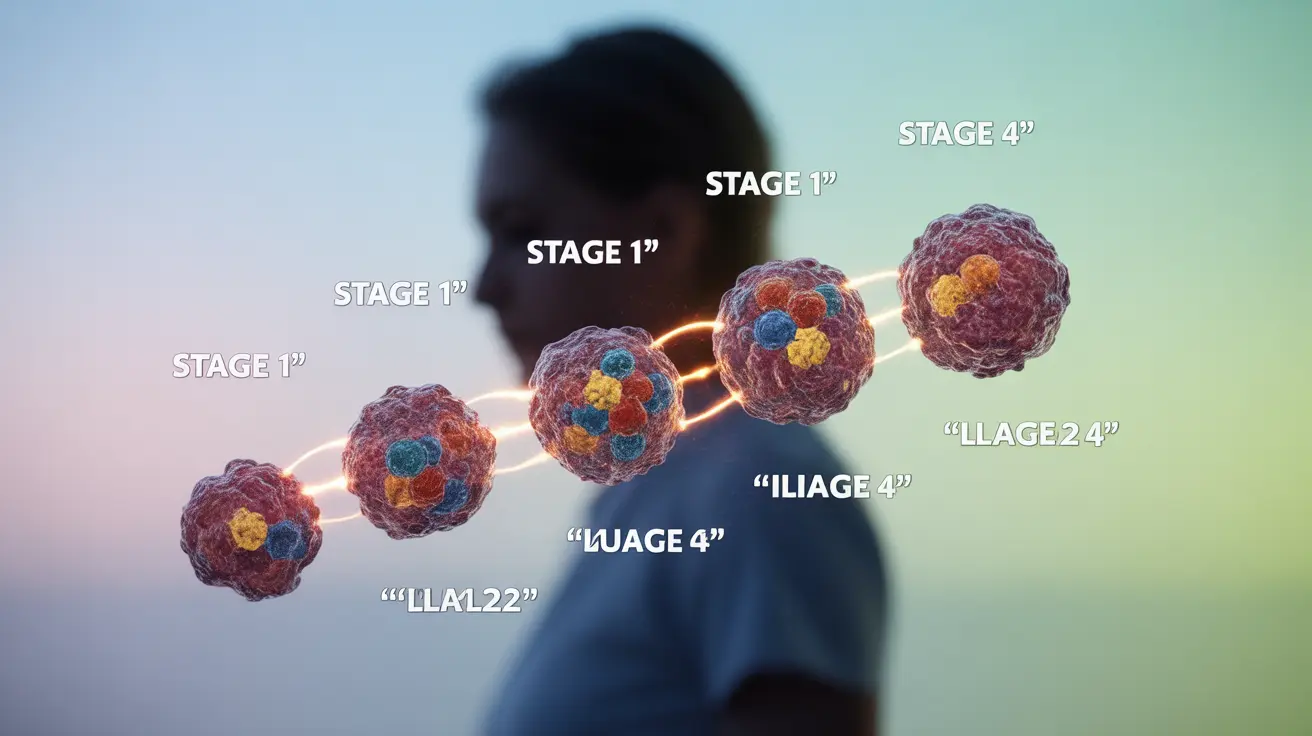When facing a cancer diagnosis, one of the most pressing concerns for patients and their loved ones is understanding how quickly the disease might progress. While the journey from stage 1 to stage 4 cancer varies significantly among individuals and cancer types, understanding the factors that influence cancer progression can help patients make informed decisions about their treatment and care.
This comprehensive guide explores the timeline of cancer progression, the factors that affect its speed, and the warning signs to watch for as cancer advances through different stages.
The Timeline of Cancer Progression
Cancer progression rates vary widely depending on the type of cancer and individual circumstances. Some cancers may progress from stage 1 to stage 4 within months, while others might take several years. For example, aggressive forms like pancreatic cancer can advance rapidly, while certain breast cancers might progress more slowly.
Common Cancer Progression Patterns
Different cancer types follow distinct patterns of progression:
- Slow-growing cancers: Some prostate cancers and certain types of thyroid cancer
- Moderate progression: Many breast and colorectal cancers
- Aggressive progression: Pancreatic cancer, small cell lung cancer, and certain brain tumors
Factors Influencing Cancer Progression Speed
Biological Factors
Several biological elements determine how quickly cancer advances:
- Cancer type and cell characteristics
- Genetic mutations present in the cancer cells
- Location of the primary tumor
- Patient's immune system response
- Hormonal influences
Treatment Response
How cancer responds to treatment significantly impacts its progression:
- Effectiveness of initial treatment
- Development of treatment resistance
- Timing of intervention
- Treatment compliance and availability
Warning Signs of Cancer Progression
Recognizing signs of advancing cancer is crucial for early intervention:
- New or worsening pain
- Unexplained weight loss
- Increasing fatigue
- Changes in tumor size or appearance
- Development of new symptoms
Monitoring and Detection Methods
Healthcare providers use various tools to track cancer progression:
- Regular imaging studies (CT scans, MRIs, PET scans)
- Blood tests for tumor markers
- Physical examinations
- Tissue biopsies when necessary
- Genetic testing for specific mutations
Impact of Lifestyle and Environmental Factors
While some aspects of cancer progression are beyond control, certain factors can influence its course:
- Maintaining a healthy diet
- Regular physical activity when possible
- Stress management
- Avoiding tobacco and excessive alcohol
- Following medical recommendations precisely
Frequently Asked Questions
How long does it usually take for cancer to go from stage 1 to stage 4, and does it differ by cancer type?
The progression time from stage 1 to stage 4 varies significantly by cancer type. Some aggressive cancers may advance within months, while others might take years. For instance, slow-growing prostate cancer might take 10-15 years to progress, while pancreatic cancer can advance much more rapidly, sometimes within months.
What factors affect how fast cancer progresses from early to advanced stages, and can lifestyle changes help slow it down?
Cancer progression is influenced by multiple factors, including cancer type, genetic mutations, immune system function, and treatment response. While lifestyle changes alone cannot stop cancer progression, maintaining a healthy lifestyle, following treatment plans, and reducing stress may help support better outcomes.
Are there ways to detect if my cancer is likely to spread quickly from stage 1 to stage 4, and what tests do doctors use?
Doctors use various methods to assess cancer progression risk, including genetic testing, imaging studies, and tumor marker tests. Regular monitoring through CT scans, MRIs, and blood work helps track any changes in cancer status and adjust treatment plans accordingly.
What are the main symptoms that suggest cancer is advancing from stage 1 to stage 4, and when should I be concerned?
Key symptoms of advancing cancer include new or worsening pain, unexplained weight loss, increased fatigue, and the appearance of new symptoms. Any significant change in symptoms should be reported to healthcare providers immediately for proper evaluation.
How much do genetics and environmental factors influence the speed at which cancer moves from stage 1 to stage 4?
Both genetics and environmental factors play significant roles in cancer progression. Genetic mutations can make some cancers more aggressive, while environmental factors like exposure to carcinogens, lifestyle choices, and access to healthcare can impact how quickly cancer advances and responds to treatment.




